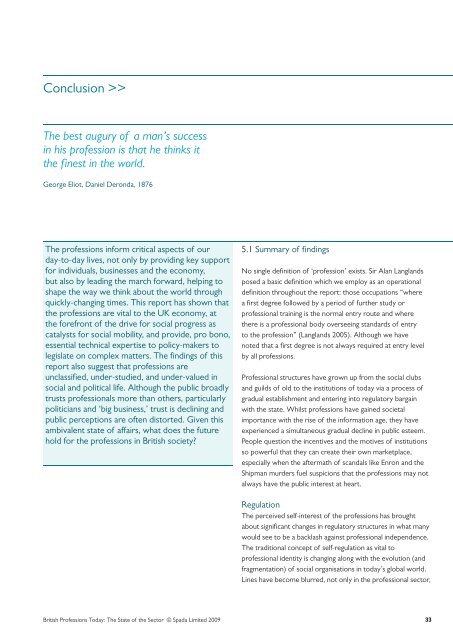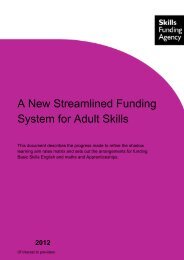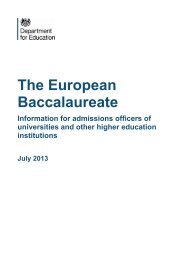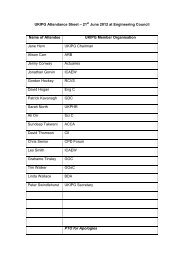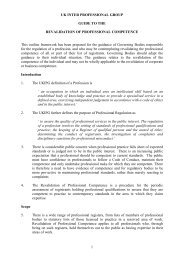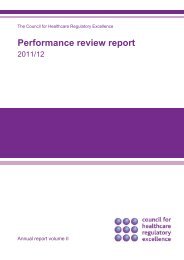BRITISH PROFESSIONS TODAY: THE STATE OF ... - Property Week
BRITISH PROFESSIONS TODAY: THE STATE OF ... - Property Week
BRITISH PROFESSIONS TODAY: THE STATE OF ... - Property Week
Create successful ePaper yourself
Turn your PDF publications into a flip-book with our unique Google optimized e-Paper software.
Conclusion >><br />
The best augury of a man’s success<br />
in his profession is that he thinks it<br />
the finest in the world.<br />
George Eliot, Daniel Deronda, 1876<br />
The professions inform critical aspects of our<br />
day-to-day lives, not only by providing key support<br />
for individuals, businesses and the economy,<br />
but also by leading the march forward, helping to<br />
shape the way we think about the world through<br />
quickly-changing times. This report has shown that<br />
the professions are vital to the UK economy, at<br />
the forefront of the drive for social progress as<br />
catalysts for social mobility, and provide, pro bono,<br />
essential technical expertise to policy-makers to<br />
legislate on complex matters. The findings of this<br />
report also suggest that professions are<br />
unclassified, under-studied, and under-valued in<br />
social and political life. Although the public broadly<br />
trusts professionals more than others, particularly<br />
politicians and ‘big business,’ trust is declining and<br />
public perceptions are often distorted. Given this<br />
ambivalent state of affairs, what does the future<br />
hold for the professions in British society?<br />
5.1 Summary of findings<br />
No single definition of ‘profession’ exists. Sir Alan Langlands<br />
posed a basic definition which we employ as an operational<br />
definition throughout the report: those occupations “where<br />
a first degree followed by a period of further study or<br />
professional training is the normal entry route and where<br />
there is a professional body overseeing standards of entry<br />
to the profession” (Langlands 2005). Although we have<br />
noted that a first degree is not always required at entry level<br />
by all professions.<br />
Professional structures have grown up from the social clubs<br />
and guilds of old to the institutions of today via a process of<br />
gradual establishment and entering into regulatory bargain<br />
with the state. Whilst professions have gained societal<br />
importance with the rise of the information age, they have<br />
experienced a simultaneous gradual decline in public esteem.<br />
People question the incentives and the motives of institutions<br />
so powerful that they can create their own marketplace,<br />
especially when the aftermath of scandals like Enron and the<br />
Shipman murders fuel suspicions that the professions may not<br />
always have the public interest at heart.<br />
Regulation<br />
The perceived self-interest of the professions has brought<br />
about significant changes in regulatory structures in what many<br />
would see to be a backlash against professional independence.<br />
The traditional concept of self-regulation as vital to<br />
professional identity is changing along with the evolution (and<br />
fragmentation) of social organisations in today’s global world.<br />
Lines have become blurred, not only in the professional sector,<br />
British Professions Today: The State of the Sector © Spada Limited 2009 33


